If you're writing in 2024, you're probably writing online. (if you're not... where are you trapped?)
Writing is hard enough as it is, especially if you're a freelance writer. You have to find and pitch to clients, do research actually write, edit, deal with feedback, shoot across invoices, and then do all of it all over again.
However, since technology makes life easier for everyone, why shouldn't it help writers too?
In this article, I'll take you through the best writers websites — ones that every single writer should use on a daily or semi-regular basis to not just write... but also make money from said writing.
• A list of 9 incredible sites that’ll help you get more writing gigs and create better content
9 writer websites you need to do your best work (in 2024 & beyond)
Authory (to build an incredible writing portfolio)
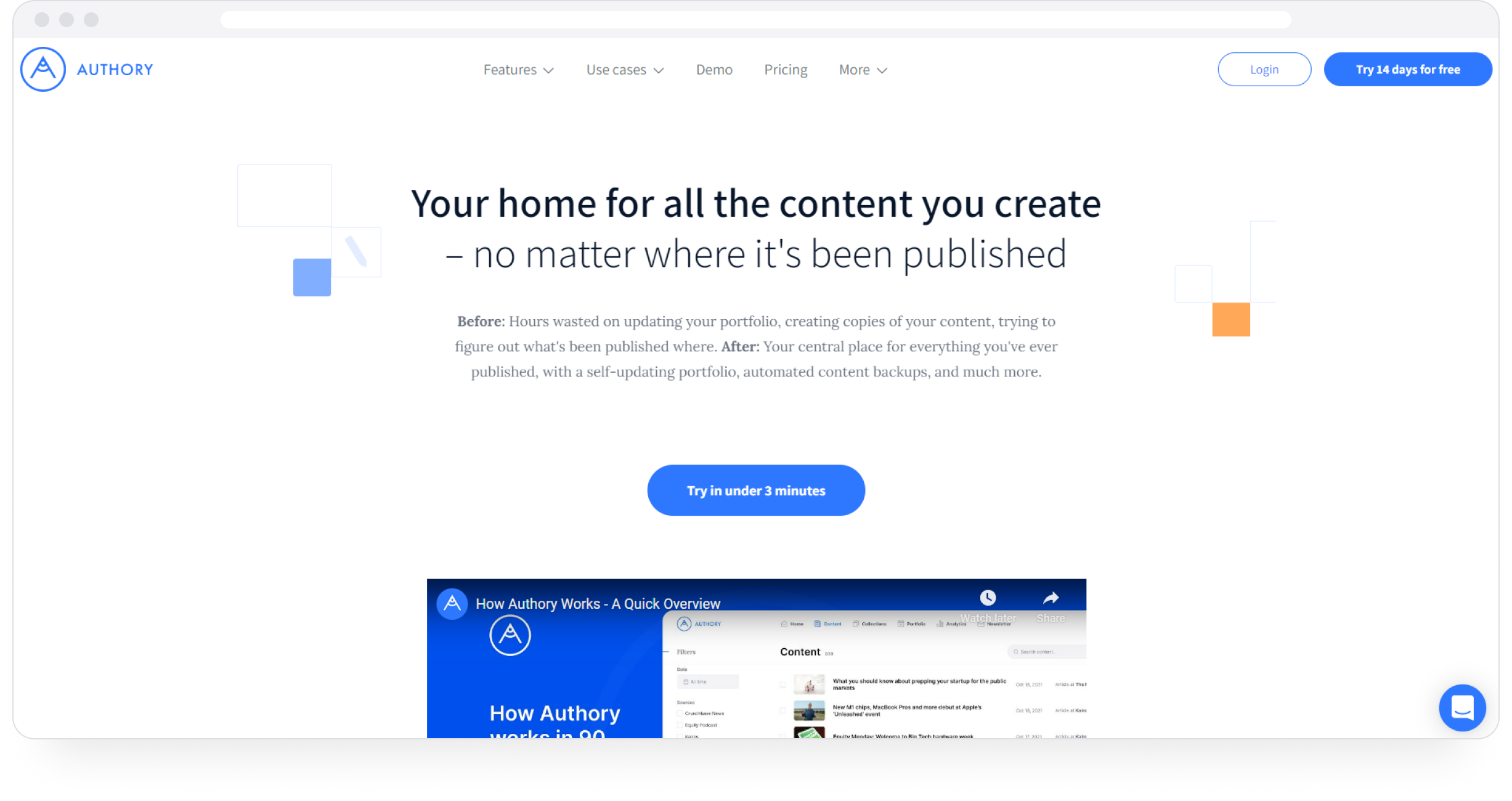
If you're writing for a living, you need a portfolio that gets you hired and paid. It is essential to your writing career.
Authory will literally find ALL your bylined content for you, extract copies of each piece and collate it in a database only accessible to you. You have all your content in one place and can add your chosen pieces to a professional portfolio with a couple of clicks.
You just need to know the website URL where your work is published. Once you feed the URL into Authory's system, the tool automatically extracts all your bylined content to its storage.
After that, you can organize your work into Collections and add relevant Collections to your portfolio with a click. The Collection names often act as the categories under which different content pieces are grouped.
As an example, here is my portfolio on Authory:
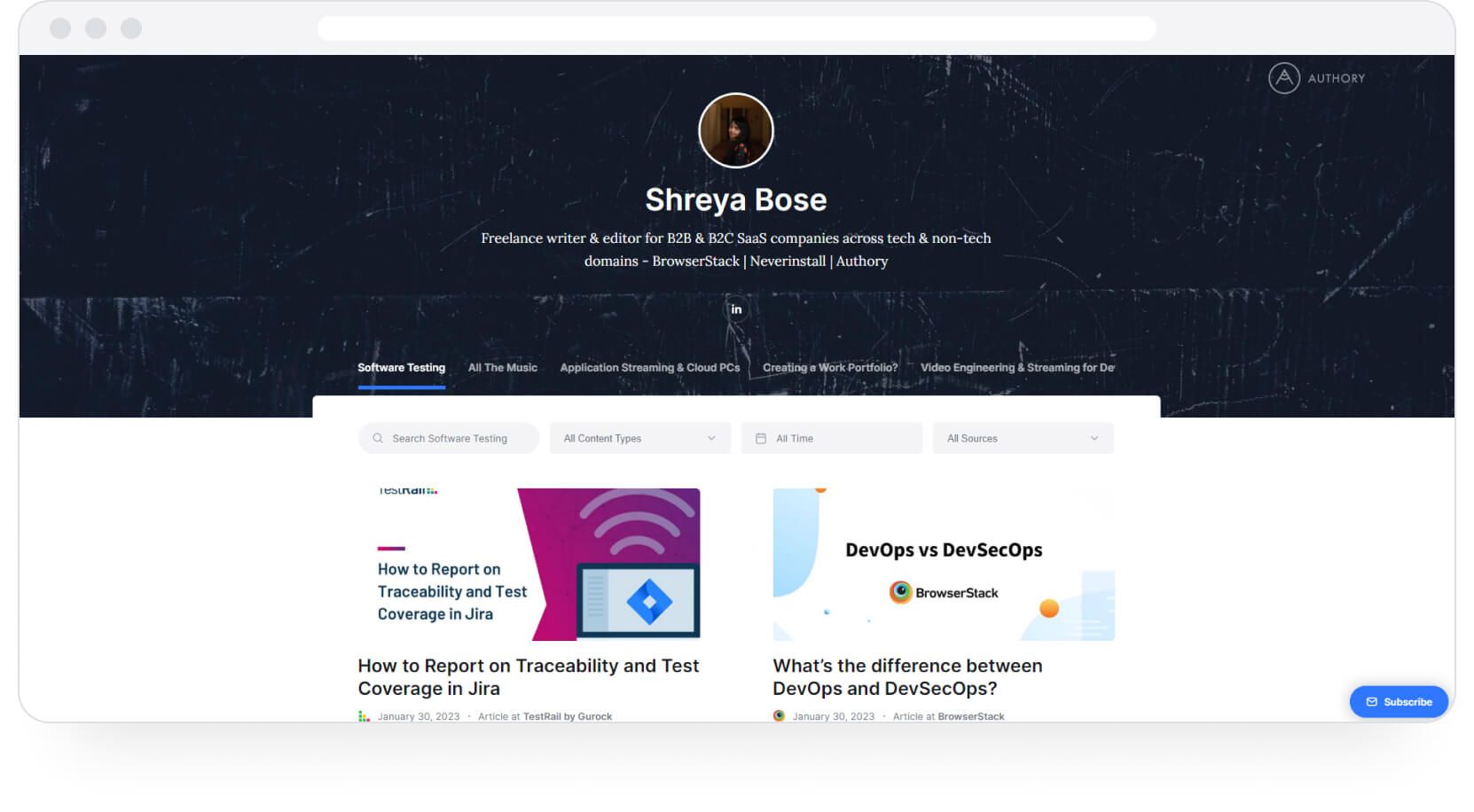
My content is grouped under headers corresponding to the domains I write within: software testing, music journalism, application streaming, and all things related to creating the perfect work portfolio. Clients can just click on each header to see the content it relates to.
Additionally, Authory will continue automatically importing any bylined pieces published on every website whose URL you've entered previously — importing your past and future content. So, you get a consistently updated portfolio without manually searching, recording, or saving anything yourself.
Also, Authory automatically and permanently saves all imported content. So, not only will you have an updated content database that you don't have to work for, but you'll also never worry about losing your work ever again.
Apart from these major offerings, here are a few other features that make a massive difference to your portfolio-building exercise.
Standout features of Authory
- All imported data is permanently backed up in the ORIGINAL format (text/media) rather than screenshots.
- Enables the creation of a custom domain for your portfolio.
- All imported content is available for immediate download as high-res PDFs or exportable as HTML files — no lock-in period.
- Multiple customization options to make your portfolio look future-forward and aesthetically appealing.
- Built-in straightforward navigability of each portfolio. It‘s designed to be intuitive and scrollable.
- Email notifications every time Authory imports a new content piece.
- Allows the inclusion of text, audio, and video content.
- In-built search engine optimization and responsive design. Your portfolio will shine on every device screen.
- Advanced analytics integration that offers real numbers on how your content is performing — engagement, readership — across the internet, including popular social media sites.
- Lets you create newsletters with a couple of clicks. Once you set it up, Authory automatically sends newly published content to all your subscribers.
- Widgets to display your portfolio on other sites, such as your personal website (if you have one).
Examples of Authory Portfolios
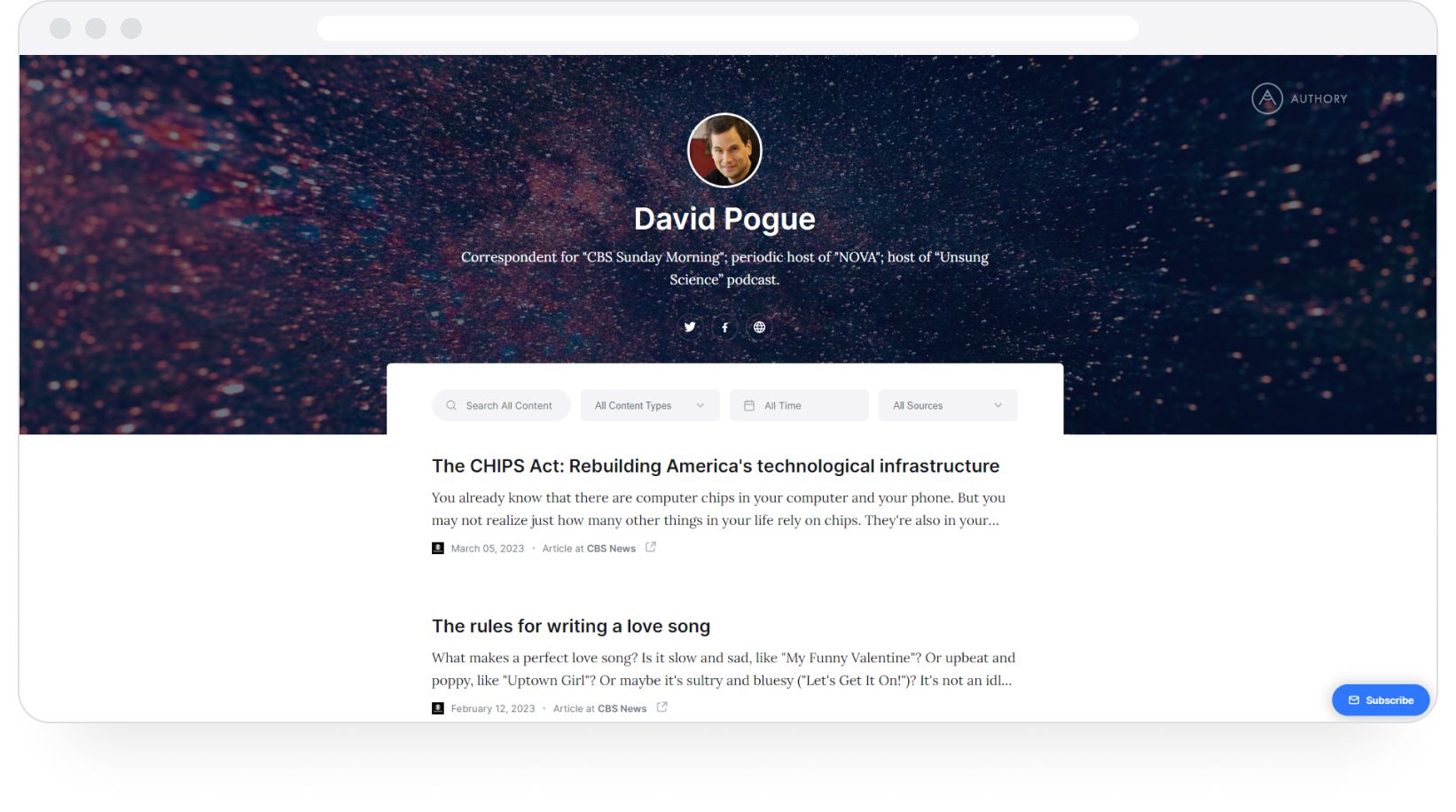
David Pogue is an Emmy-winning writer and podcast host.
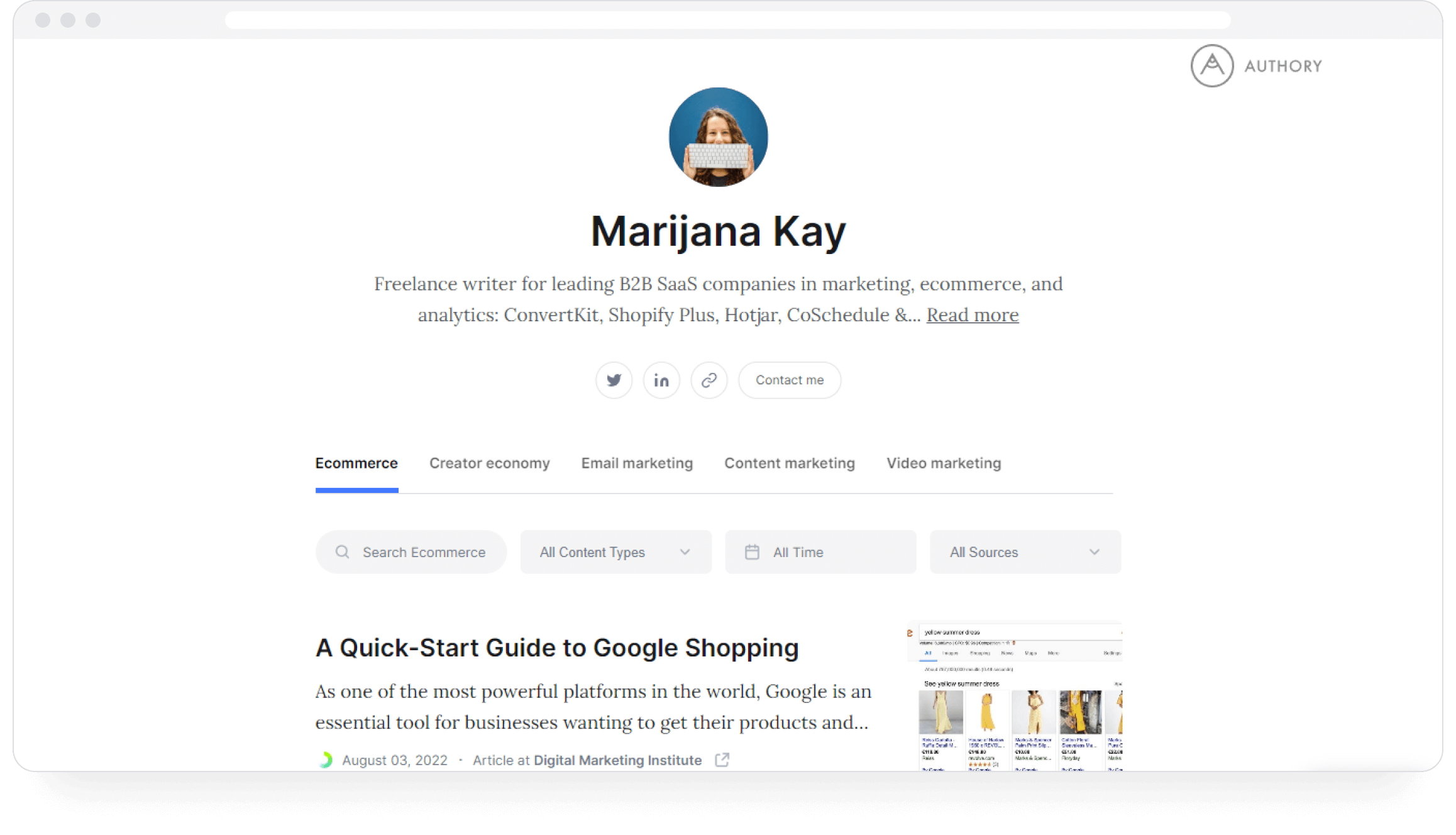
Marijana Kay is a freelance writer & content marketing expert.
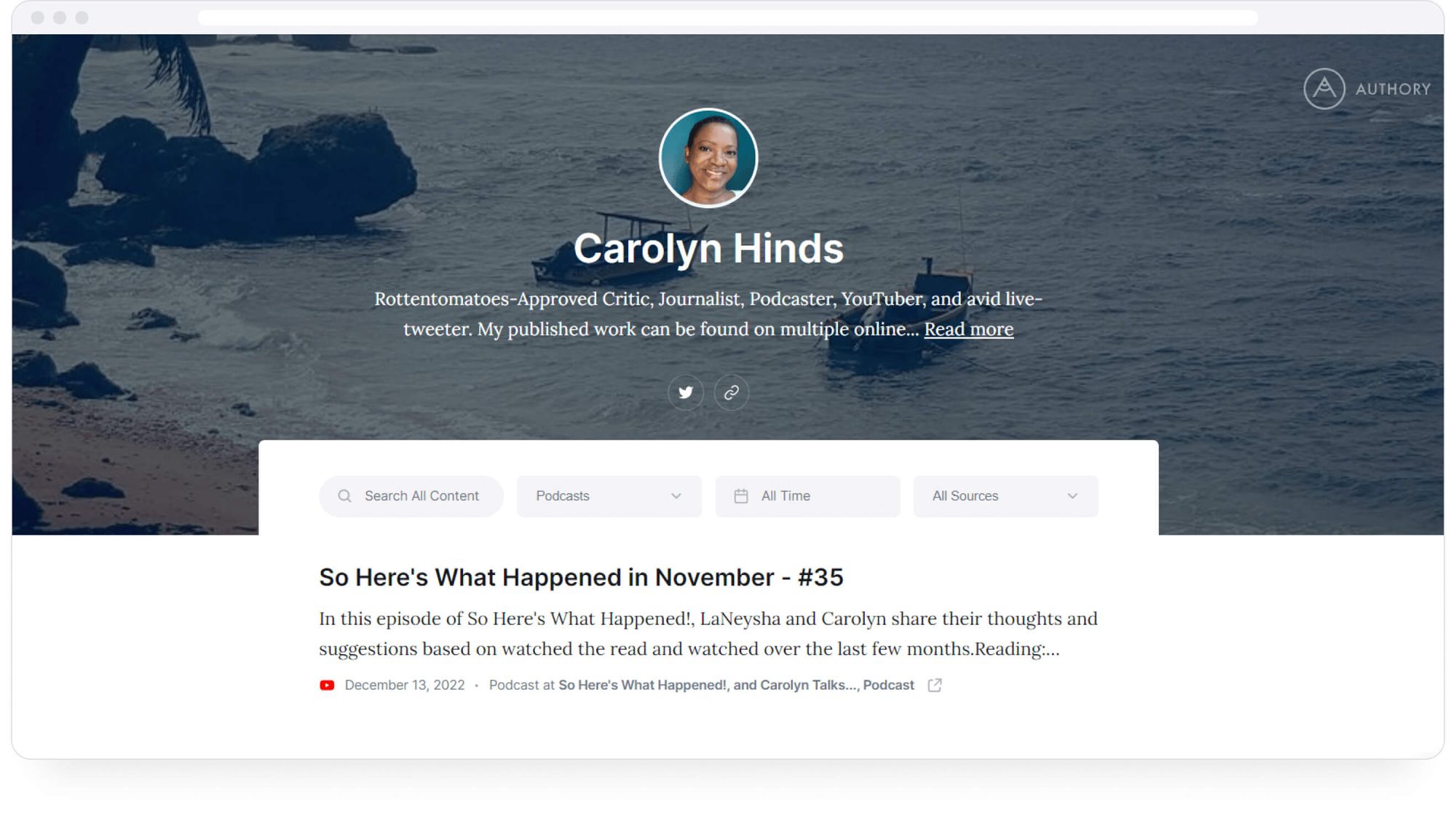
Carolyn Hinds is a Rottentomatoes critic, journalist, podcaster & YouTuber.
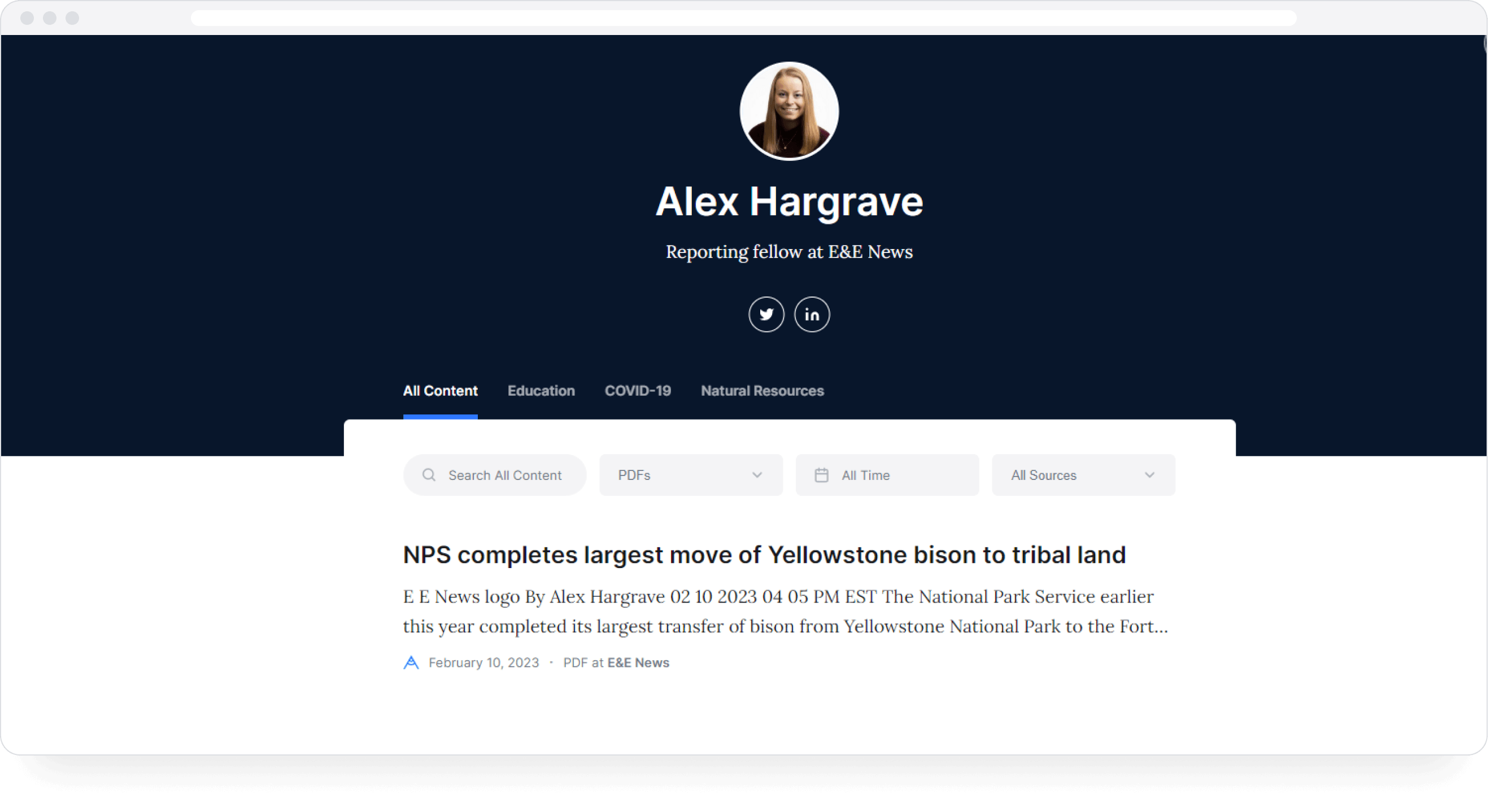
Alex Hargrave is a reporting fellow at E&E News.

Erin Rupp is a poet, author, and content writer.
Grammarly (for spelling, grammar, tone & plagiarism )

No matter how experienced you are, if you're writing frequently, you'll make mistakes with spelling/grammar. You might mistakenly plagiarize a phrase or two, or write long, run-off sentences that tire the reader's eye.
When you're putting out multiple articles a week or month, you cannot be expected to proofread everything yourself. You're human and you need help.
Grammarly is quite an excellent tool for preventing these mistakes that make you look incompetent (through no fault of your own). Install the free version as an extension on your browsers, and it'll highlight bad spellings, incorrect grammar, and even correct but awkward sentences/phrases. This applies to all of your writing — articles, essays, emails, and social media content. If you're writing within your browser, Grammarly will scan it.
The plagiarism checker and advanced sentence suggestions come with the paid plan, and it's not cheap. However, if you can afford it, I would recommend that you get a Paid Plan (largely meant for organizations). It's not necessary but the tonal and clarity suggestions can make a real difference. Additionally, it's just safer to run your piece through the plagiarism checker before submitting them.
Almost An Author (for writing inspiration)
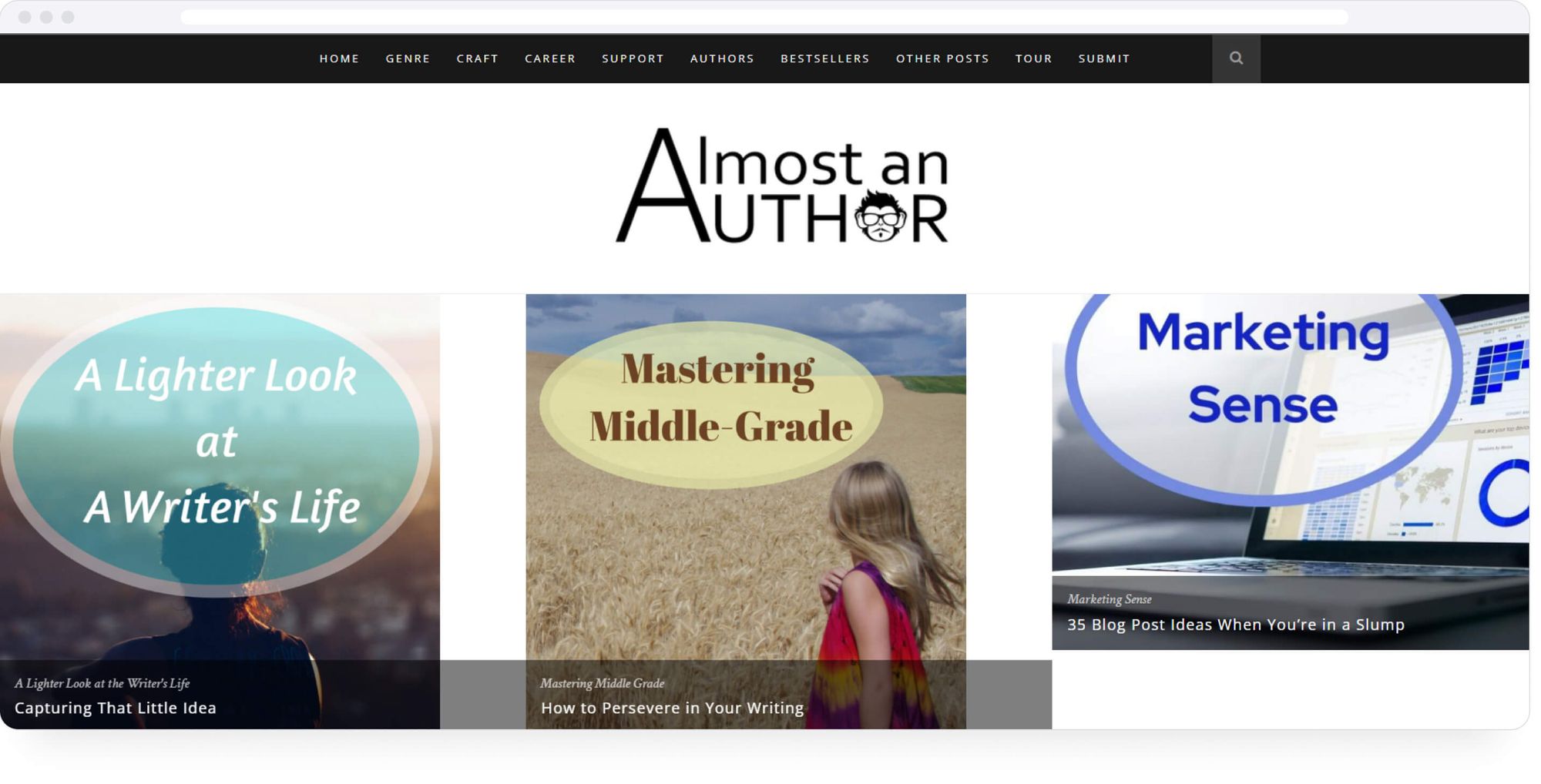
Feel stuck in a rut? Ready to rampage at your writer's block? Almost An Author is meant for you.
This site puts out a decent amount of content every day, with ideas, topics, and practical tips to get your creative juices flowing again. You become part of a writing community, exchange ideas and get a bit of emotional support before diving back into the pen and paper (or more realistically, the screen).
The "Support" section notably contains information for writers with disabilities, about finding mentors, and even about having patience with your craft. It's among the best writing blogs I've come across, and I am definitely a regular visitor.
Writer's Digest (for industry advice & competitions)

Writer's Digest is among the most established writing sites out there. You get advice from professional writers, as well as other individuals connected with the publishing industry. Relevant, up-to-date information on how to write better & publishing tips is the main reason a writer would keep returning to this writing website.
Simple, insightful posts dole out actionable ideas on everything from honing your writing skills, acquiring useful writing tools, and even finding writing classes or writing programs that match your writing style & ambitions.
Don't forget to check out competitions and events hosted by Writer's Digest. Needless to say, this is an excellent support group for aspiring & veteran writers alike.
AgentQuery.Com (to find literary agents)
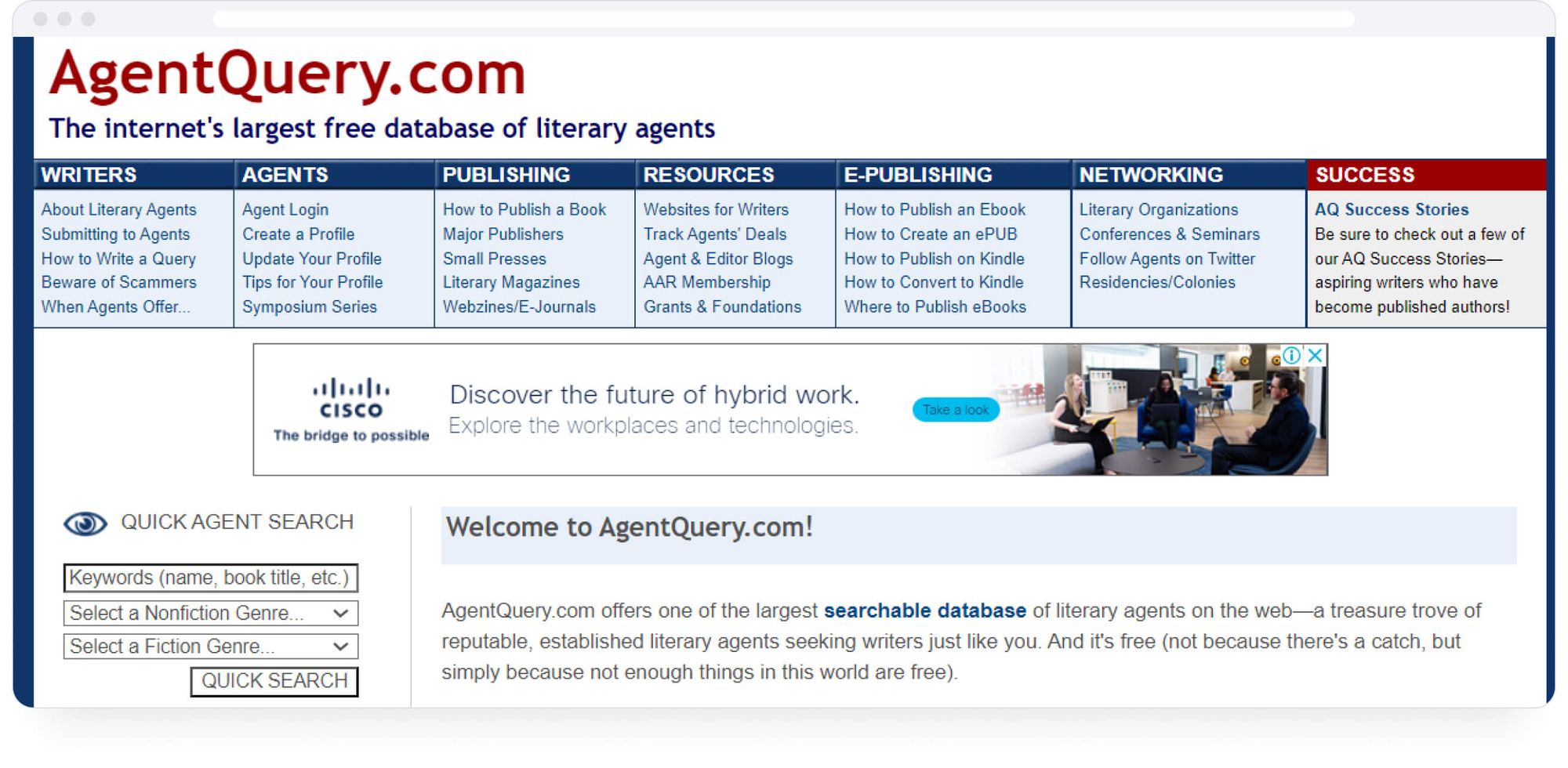
This site won't be of much use if you're writing blogs for clients in non-literary spaces (as I do). But if you'd like to become a professional author, you need an agent. This is when you start visiting AgentQuery.Com.
This writer website provides a massive searchable database of literary agents — reputed ones looking for writers in their particular niche. Oh, and the service is free.
The site claims that they have "helped hundreds of authors score publishing books deals with major New York publishers and Amazon-operated imprints.” You can also access a vast number of resources on self-publishing, e-publishing, and networking advice for writers.
Upwork (to get your first freelance writing gigs)

Upwork is among the world's most popular freelance marketplaces. You can find jobs for every skill, with plenty of writing jobs up for the grabbing. Be warned that Upwork is home to almost 10 million freelancers and 5 million clients. Making a name for yourself won't be a cakewalk if you're new to the industry, but who doesn't have to hustle for the first year?
On Upwork, you can filter for short and/or long-term contracts. There are even hourly projects you can apply to if the work & pay appeal to you.
Upwork, though, takes a not-so-insignificant part of your payments as fees, so this isn't a great site for finding work in the long run (you end up losing too much money). But if you're in your first year of a writing career, this is a great platform to find work that gets you off the ground.
Write to Done (for writing advice, tips & motivation)
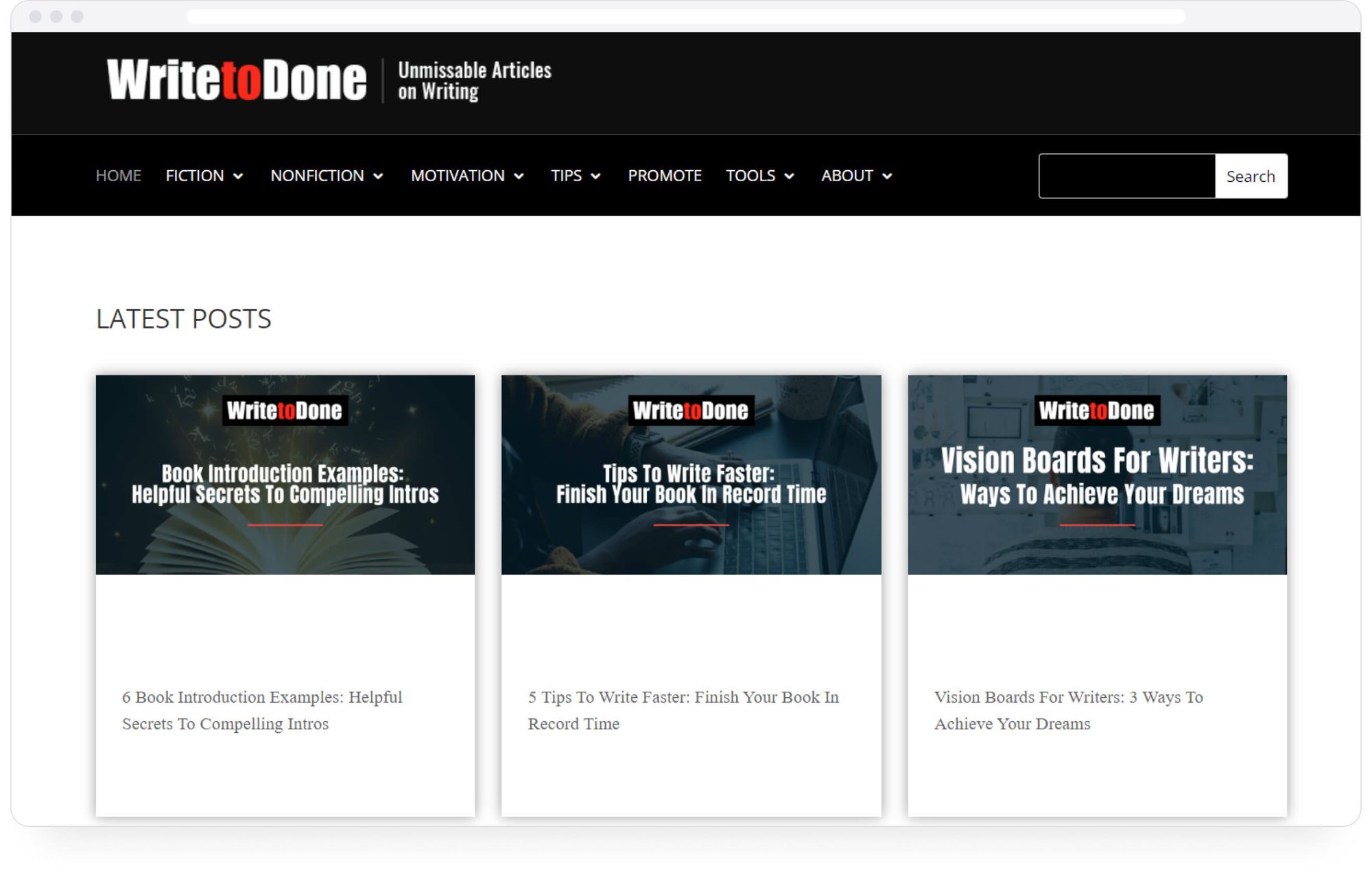
The "About" section of this site states that "our aim is to provide inspiration and practical tips about becoming a better writer.” As the name suggests, this site provides resources on everything from writing, marketing, promoting, and even staying motivated while writing.
The site covers both fiction & non-fiction writing, so it's useful even if you're not an author in the traditional sense (if you write blogs for tech startups, for eg.).
Evernote (to organize your writing)
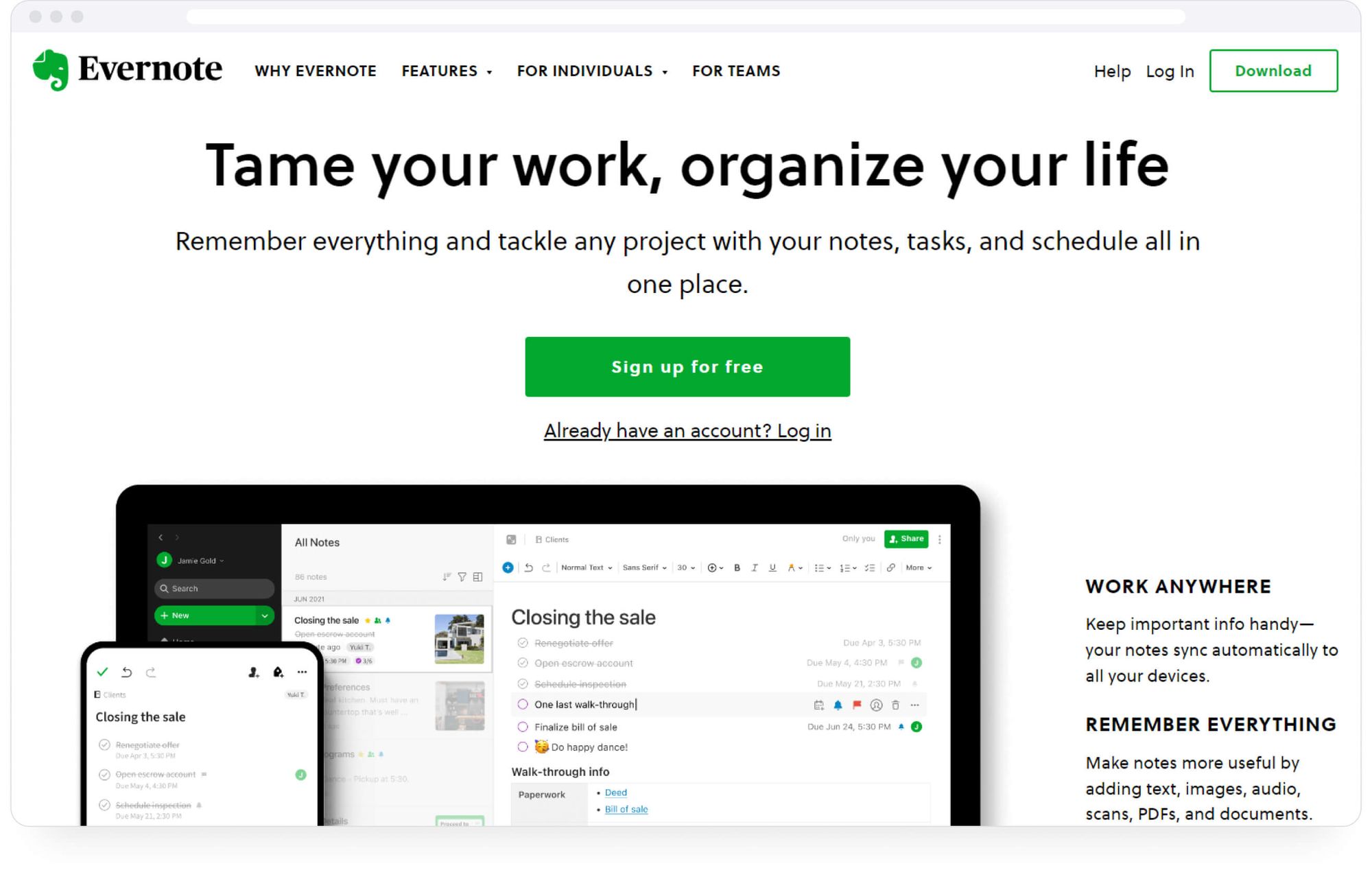
Think of Evernote as your personal project manager. You can jot down your ideas, add images, documents, and audio so that your idea is quickly fleshed out into actionable content. Store and access everything from a single dashboard — checklists, emails, PDFs. Use the smart search feature to look up anything you want within seconds.
Evernote can sync with all your devices, so you'll have your notes available at your fingertips 24X7.
Hemingway (for greater clarity in writing)
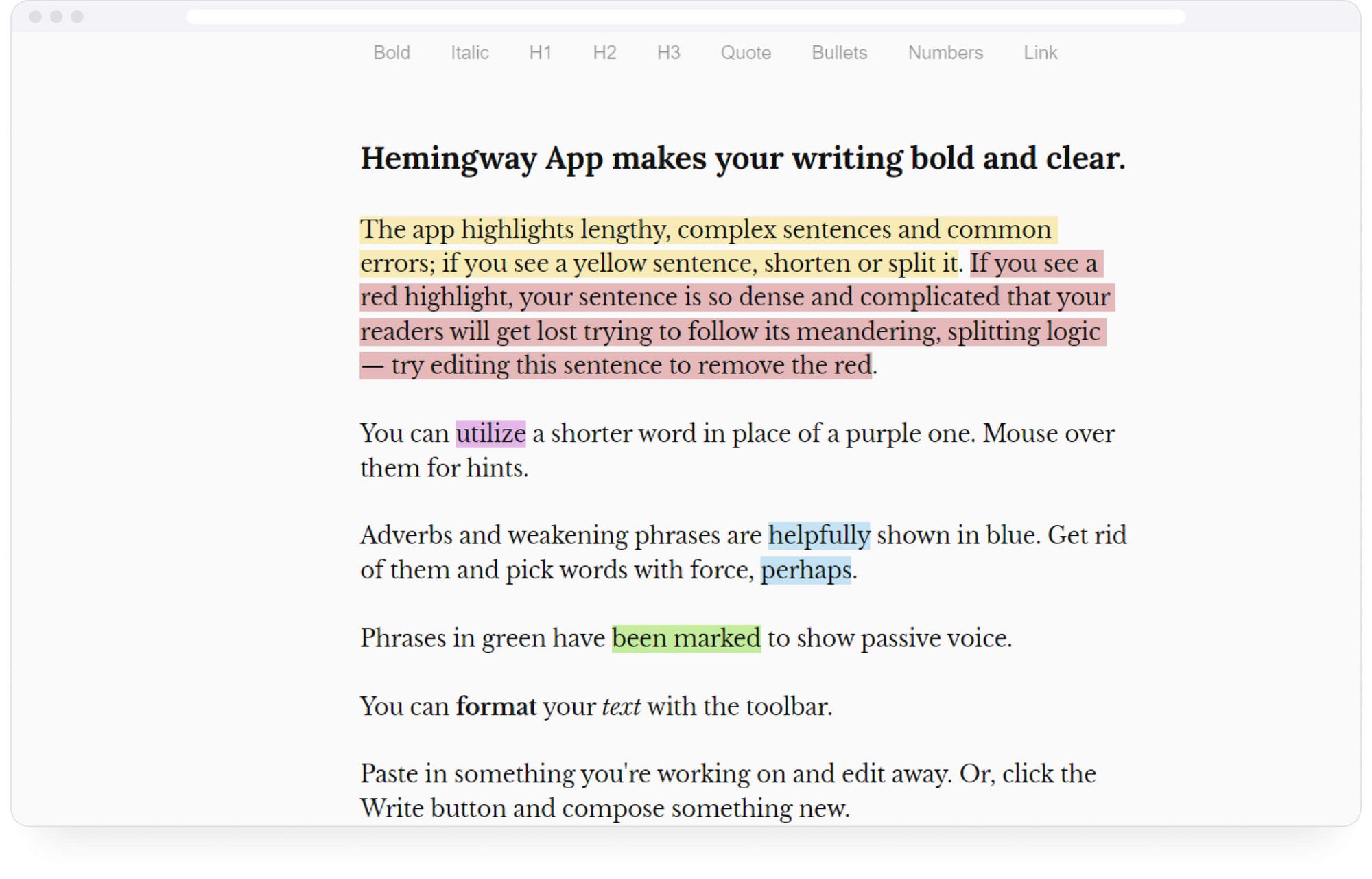
Hemingway is an absolute necessity for writers like me, ones that tend to write long, sometimes complex sentences. It's somewhat automatic for me, but the practice isn't great for retaining readers’ attention. Hemingway to the rescue.
Simply feed your writing into the app (there is a desktop version too), and it'll highlight sections that need more clarity. Highlights are in different colors — yellow for "too long," red for "way too complicated,” purple for "use a shorter word,” blue for "unnecessary word/phrase,” and green for "passive voice.”
Let technology make you a better writer
With the advent of AI tools & more people picking up writing jobs, you need all the help you can get to keep making money off your writing. It doesn't mean you have to work harder, just smarter.
Try the tools & websites discussed above, and you'll find yourself getting better gigs and submitting better content. Software like Authory lets you create an incredible portfolio to get clients' attention, while you can get ideas and learn how to network from Writer's Digest, & clean up your work using Grammarly and Hemingway.
Well, what are you waiting for? Sign up on Authory for FREE, and set the ball rolling! Your writing career is waiting to make you some real money.




